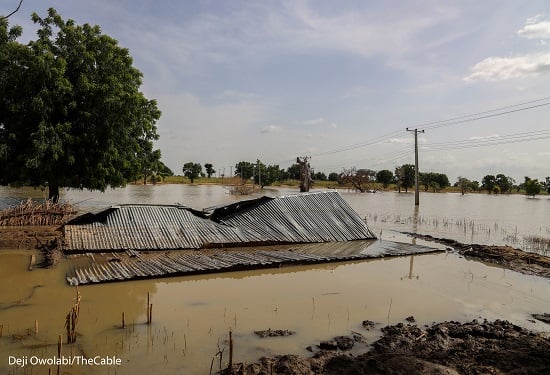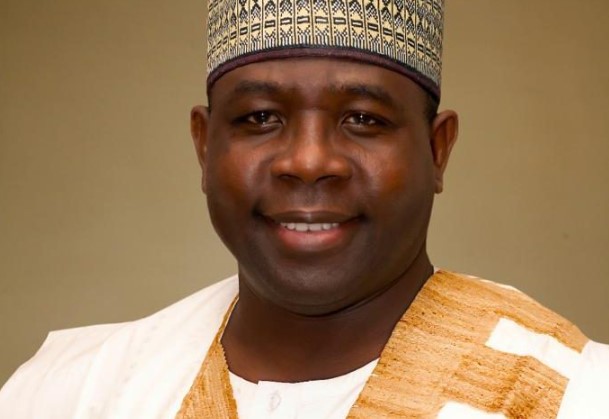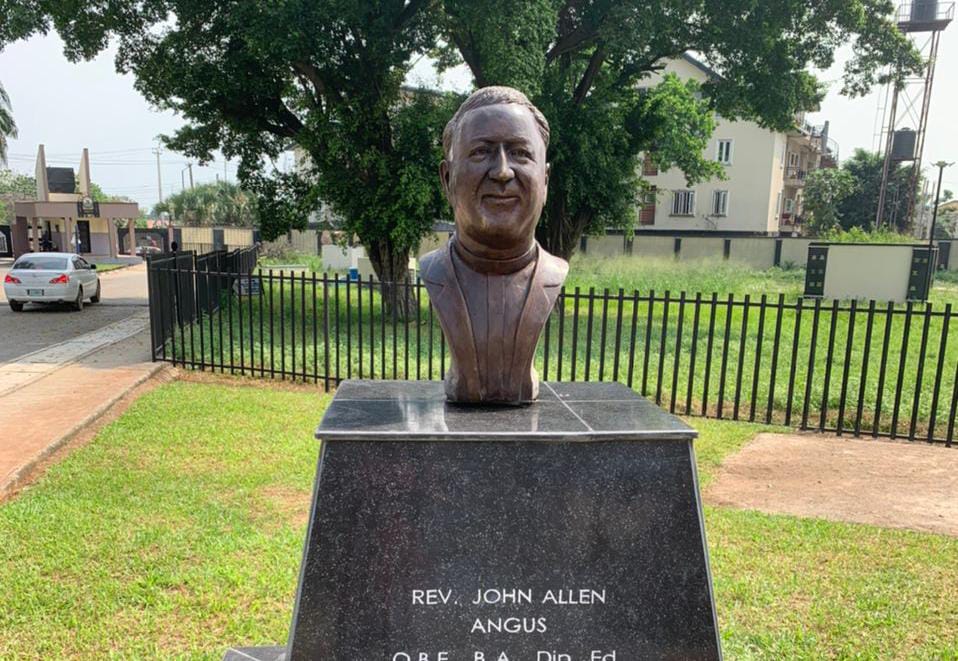Flood in Jigawa, Nigeria in 2022
BY CHIAMAKA ADINNU
The devastating impact of the recent flooding in Nigeria has aggravated the food and agricultural challenges. With over 266,000 acres of land-bearing farm products worth billions of naira submerged in flood, there is the certainty of food shortages in Nigeria. In the face of the ongoing crisis, sustainable solutions are necessary to minimise the socio-economic and food security impacts. Disaster risk management must be urgently implemented if Nigeria must emerge from the crisis. Additionally, investment in capacity-building and disaster risk prevention is essential to prevent floods and improve agricultural resilience.
The flooding has also exposed the structural and systemic shortfalls of the Nigerian government. The existing government efforts to control the scale of the flood damage through flood relief and evacuation have proved ineffective at best. A statement by President Muhammadu Buhari called for rescue and evacuation for communities living in floodplains. However, with the many lives lost daily, one has to question the implementation of this measure.
Sadly, the Nigerian government had received the flood forecast early enough to formulate a foolproof disaster plan, but the reality of the devastation says otherwise. A viable solution to this would be to evacuate at-risk residents. The formation of trained community response teams to evacuate residents living along floodplains would have controlled the scale of the flood damage to human lives. Adequate provision of shelter, relief materials, and other forms of support to the victims of flooding should be integral to the response program. It is not only the fundamental right of citizens but also serves to preserve human resources, including the agrarian communities, which Nigeria needs to restore the fatal damage to the agricultural sector.
Advertisement
Regarding disaster risk reduction, Nigeria has lagged in implementing measures that reduce the incidence of flood impacts. Enough blame has been placed on the release of water from the Cameron dam that has resulted in the deadly flooding in Nigeria. But the real failure is in the Nigerian governance system. The reality is that Nigeria has failed to complete the building of the Dasin Hausa dam, which it started in 1981. The Dam construction would have forestalled the flooding and contributed to agricultural sustainability by irrigation arable lands.
The negligence in completing the dam construction points to Nigeria’s lack of political will to invest appropriately in areas that help prevent and control over-flooding. Therefore, the solution starts with developing the political will to forestall such incidences rather than to remedy them when they arise. The government should prioritise erecting physical structures that can buffer the possible effects of flooding through an increased agricultural national budget. The construction of sturdy roads, dyke systems, buffer dams, and drainage channels is crucial in flood regions of the country.
More resources should be channelled into disaster risk preparedness. For instance, they are designing a capacity program against the issue of anthropogenic factors that contribute to flooding. In Nigeria, the rapid urbanisation, deforestation, and construction of settlement along floodplains is a cause for concern. Our agricultural practices are unsustainable and mitigate against climate resilience. The melting iceberg and the consequences of global warming are fast becoming our reality. Its negative impact on food security is enormous. The capacity-building program should build on the internal capacity of flood-prone communities through knowledge acquisition. Farmers should be trained and empowered on climate-resilient agricultural practices. Such knowledge impacts their capacity to promote disaster risk reduction through behavioural change. It also enhances their capabilities to plan, respond, and recover from future flood events if they occur.
Advertisement
It is not enough to construct these physical structures and develop the laws. They must be maintained and enforced, as the lack of implementation nullifies the efforts. To circumvent this, a committee can be set up to oversee the implementation of action plans against disasters. This committee should ideally comprise representatives from flood-prone communities and the national body. Such decisive large-scale collaborative intervention fosters accountability and erodes policy failures.
Shall we continue to tear down our developmental efforts and lose human and natural resources when the solution to forestall lies within our power? Hopefully, this incident serves as a wake-up call to the Nigerian government on urgent action to mitigate disaster risks. No doubt disaster risk management strategies, capacity building and other risk prevention strategies are essential to controlling the impact and incidences of flooding.
Chiamaka Adinnu is a writing fellow at the African Liberty.
Advertisement
Views expressed by contributors are strictly personal and not of TheCable.






